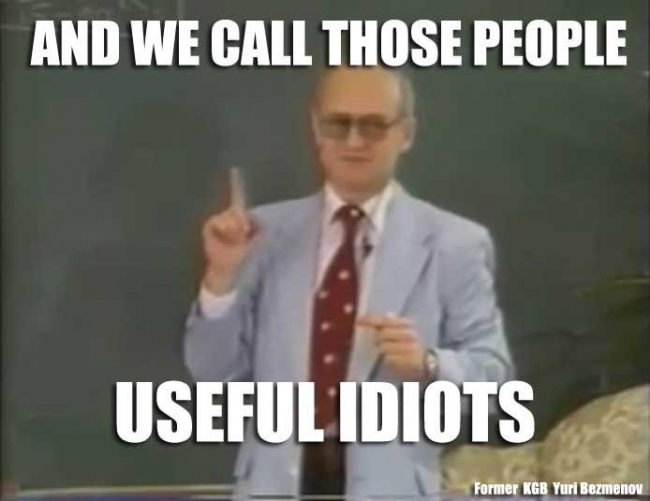Useful Idiots

The term “useful idiots” is a politically charged expression that gained prominence during the 20th century. Coined by Vladimir Lenin, it refers to individuals who unknowingly support or promote the agenda of a political movement or ideology, often to their own detriment. This article will explore the concept of “useful idiots,” its historical context, and provide examples that demonstrate its application.
Historical Context:
The term “useful idiots” originated during the early years of the Soviet Union under Lenin’s leadership. Lenin used it to describe sympathetic Western intellectuals and fellow travelers who, despite their noble intentions, unwittingly served as propaganda tools for the Soviet regime. Lenin believed these individuals were blinded by their own idealism and failed to recognize the true nature of the oppressive regime they were endorsing.
Examples of Useful Idiots:
- Western Intellectuals and Communism: One prominent example of “useful idiots” can be found in Western intellectuals who romanticized communism and the Soviet Union during the early 20th century. Figures such as George Bernard Shaw, H.G. Wells, and Sidney and Beatrice Webb expressed admiration for Soviet policies without fully acknowledging the human rights abuses and repression taking place under the regime.
- Nazi Propaganda and Collaboration: During World War II, Nazi Germany employed the concept of “useful idiots” to manipulate individuals and groups in occupied territories. The Nazis exploited existing prejudices, fears, and grievances to gain support from collaborators who unwittingly served their agenda.
Modern Interpretations:
The concept of “useful idiots” continues to be employed in political discourse to describe individuals or groups who, knowingly or unknowingly, further the interests of a cause or ideology without fully comprehending its consequences. Critics argue that it is essential to remain vigilant and question the intentions behind persuasive rhetoric, as it is possible to be unwittingly manipulated or misled.
Unfortunately, it doesn’t end well for the useful idiots. As Soviet defector Yuri Bezmenov stated, “[T]he useful idiots…when they get disillusioned, they become the worst enemies…obviously they get offended—they think that they will come to power. That will never happen, of course. They will be lined up against the wall and shot.”
Conclusion:
The concept of “useful idiots” offers an important perspective on how individuals can unknowingly contribute to political or ideological movements without fully understanding the consequences of their actions. While historically associated with Lenin and the Soviet Union, the term has broader applications in analyzing various contexts where people may be exploited or used for ulterior motives. It serves as a reminder to critically evaluate the narratives and ideologies that surround us, remaining aware of the potential unintended consequences of our actions and beliefs.





